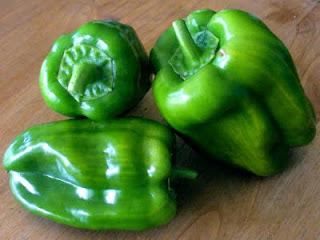--horse ranchers from British Columbia, on CBC's 75th anniversary special.
I'm sitting on the couch, watching Canadian television, received on an antenna over the air from Nova Scotia. When J., who has a smart-phone, comes over from Caribou, it blows the signal out. Canadian television is one of the best things about living in northern Maine. Tonight they're airing "1 Day, 24 Hours, 34 Million Lives," a day in the life of Canada, where all Canadians everywhere sent in footage of themselves on a single day in late April this year. In a little inn in California, on the Pacific Crest Trail, I saw a coffee-table book that had a similar theme--Life magazine had sent out photographers to each corner of the country to film an entire day in the United States in the late 1970s-early 1980s. It's one of the coolest collections of photography I remember seeing, but I haven't seen anything similar since. The first photograph in the collection, of course, was sunrise atop Mount Katahdin.
So this documentary series one of the best I've seen, with self-filmed footage of people from Prince Edward Island to Alberta, and my tolerance for documentaries has become extremely high with all the PBS I watch. We also get must less spectacular television from Canada, for example, Battle of the Blades. It's a reality show with ex-hockey players ice dancing with ex-figure skaters. Not as compelling as it sounds, believe me--I tried to watch.
You'd think with fewer channels I'd watch less television, but I find instead that my tolerance for crap, and documentaries, just increases, especially when I'm depressed, and winter looms, and I don't have internet access at home or a computer that works to do any of the things I love. Except to put text into a blank text document—that I can still do, and am beginning to do again, although with every word I type that evil demon that lives inside of my head says: crap, crap, crap. If every word I type is ephemeral as wind, then what's the point? Might as well go watch some Canadian television.
I press on. I'm enrolled in National Novel Writing Month again this year, although already marvelously behind. I have to believe that the simple exercise of putting words onto the page has to have some value. One of the stories I keep telling myself is that of my grandfather, who used to troll bookstalls in both Cairo and Manhattan, looking for elusive out-of-print theology texts, many of which still line the bookshelves of my parents’ basement. I keep thinking about those books that he spent his whole life collecting, how they're just as easily destroyed as the books and music and photographs that I lost last month. My sister has a friend who built two houses in the last five years, both of which burned to the ground. Another Chattanooga acquaintance had her childhood home, an antebellum mansion with a colonnade, go up in flames just two weeks ago. All of that material, lost forever.
Time's arrow moves in only one direction. If I had to say one good thing that has come out of this disaster, is that I'm trying to live more fully in the moment. We all know it's all we have, but it doesn't mean we live like it.
The theologians who wrote those books in my parents' basement are long gone, their families long since dead. The author's heirs have stopped collecting royalties, and most of the books are in eminent domain. Most likely no one will read those books again. The theories propounded in them are debunked or outdated. People want to read new theology, post-deconstructionalism, theories of God in the digital age, shiny new trade paperbacks or e-books on their iPads and Kindles. My grandfather's books gather dust, await fire.
In some ways, this whole argument is about money. If I had $3000, I could get my data back. That's what data-recovery services cost. But I'd much rather give that $3000 to musicians and artists, the people creating the art stored in digital form. That's my resolution—to spend as much money as I spend on recovery on art, and the amount's already climbing slowly upward. My next investment has to be a new circuit board for the hard drive, because I'm unwilling to give up yet, even though I know the hunt is rapidly attaining the level of an obsession.
Some days I give up. I retreat to my crocheting on the couch, and watch Canadian television. I watch horse ranchers who wake up at one in the morning to check on their foaling mares. I think about the life that God has given me to live, with its foolishness and grief. And I post Psalm 90 above my desk:
Lord, you turn men back to dust,
saying, “Return to dust, O sons of men.”
For a thousand years in your sight
are like a day that has just gone by,
or like a watch in the night.
You sweep men away in the sleep of death;
they are like the new grass of the morning—
though in the morning it springs up new,
by evening it is dry and withered.
Relent, O Lord! How long will it be?
Have compassion on your servants.


















